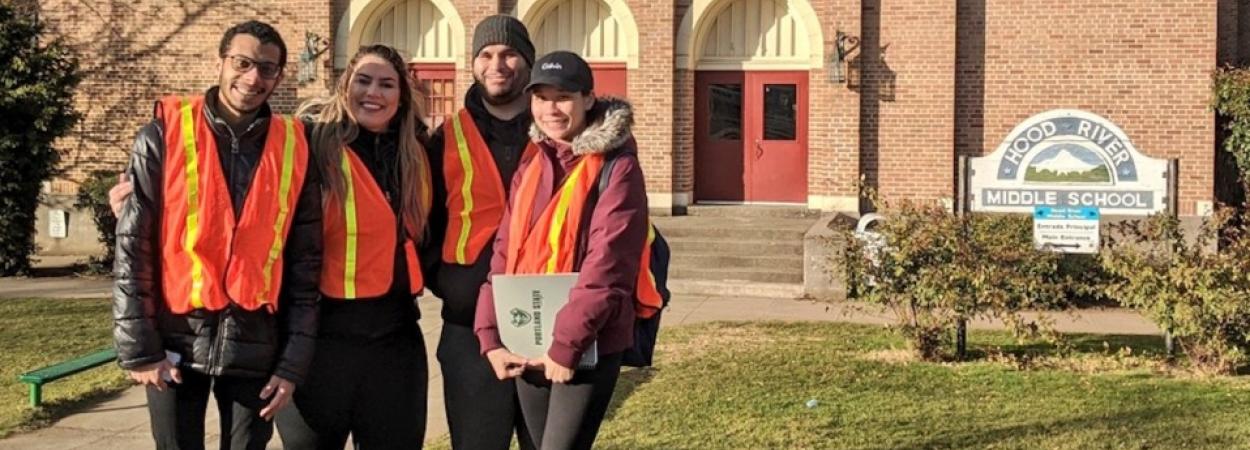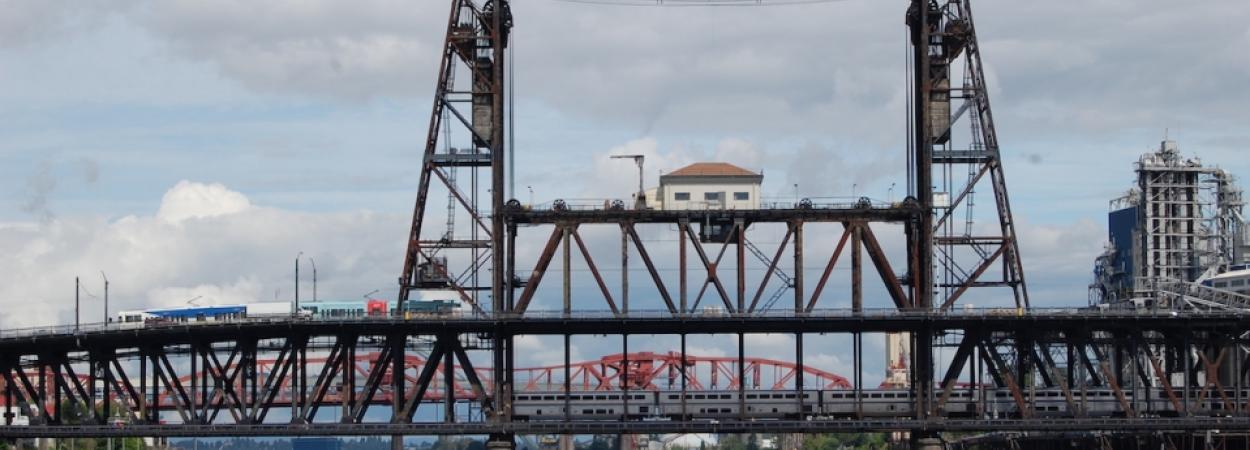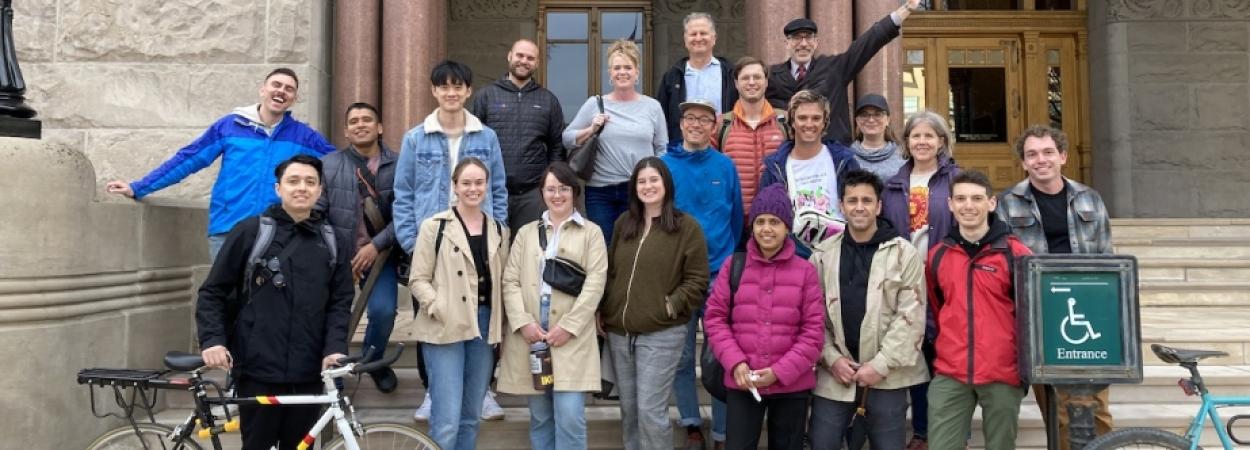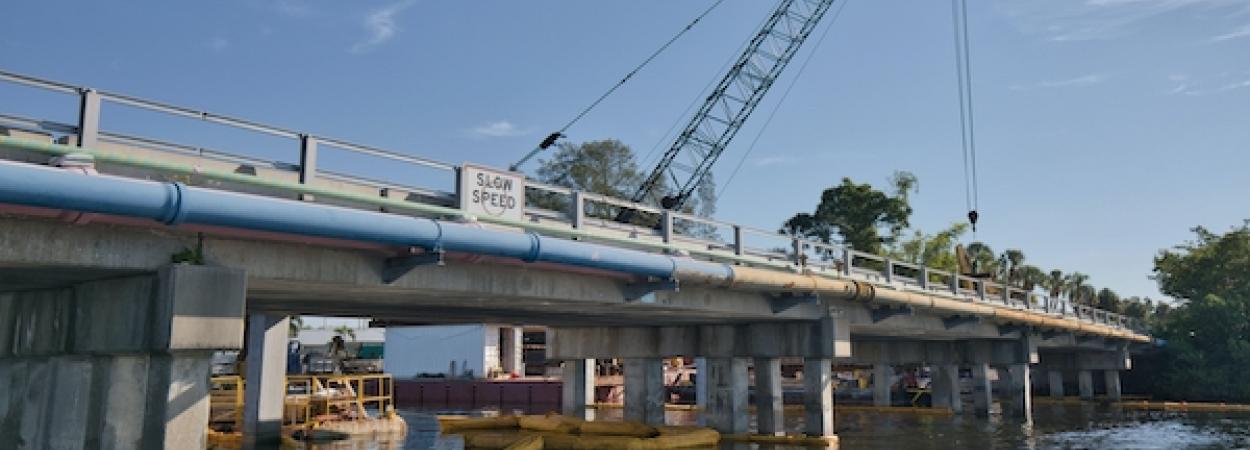 |  |  |

Better Block PSU is a partnership program between the volunteer-led group Better Block PDX and Portland State University - encouraging everyone to imagine what spaces could be when they are designed for people. Once a year, community members submit their project ideas to the Transportation Research and Education Center (TREC) at PSU. Selected projects are then integrated into a pathway of PSU planning and engineering classes, through which students gain hands-on experiential learning by developing plans, designs, and engineering solutions.
Students in PSU's Pedestrian and Bicycle Planning course, taught by Drusilla van Hengel, are currently working on the newest slate of projects. The course seeks to provide each project partner with an evaluation of each site's level of pedestrian and bicycle activity and existing conditions, a community e…
Read More
An Oregon Department of Transportation (ODOT) report, Resilient and Rapid Repair Measures for Seismically Vulnerable Bridges Following Major Earthquakes, introduces a rapid repair method for bridges in the event of a major earthquake.
The Cascadia Subduction Zone earthquake threatens bridges across the Pacific Northwest. Damage is expected to be geographically spread throughout the region and will have a nearly simultaneous impact on transportation through several important corridors. While bridge repair and replacement will ultimately be needed, an immediate priority will be resuming mobility. With that in mind, the project team developed a method for repairs to be implemented quickly.
The quick repair involves encasing a damaged bridge column in a steel jacket, which is then anchored to the found…
Read More
How could a free transportation class for people living in the Salt Lake City region strengthen community conversations and advocacy around local priorities in transportation policy? Researchers at Portland State University (PSU) and University of Utah (UU) explored that question by bringing a well-known learning model from Portland, Oregon to SLC.
For over 25 years, the Portland Bureau of Transportation has partnered with PSU to offer the Portland Traffic and Transportation Course – a free 10-week course designed to provide local community members the skills and knowledge to participate in transportation decisions affecting their neighborhoods. This model has proven to be a success story in public agency-university partnership in community education. Building upon a 2015 project that documented the Portland course and developed a curricul…
Read More
David Yang, an assistant professor in the Department of Civil and Environmental Engineering at Portland State University, is the principal investigator on two newly-awarded research projects for the Federal Highway Administration (FHWA) in support of its structural engineering programs.
"As the transportation infrastructure continues to age in an ever more uncertain future, it is essential to assess and manage infrastructure risk during the evaluation, maintenance, and rehabilitation processes. These two projects are dedicated to the development of such risk-informed approaches for existing culverts, bridges, and tunnels," Yang said.
In the first project, Framework and Methodology for Risk-Based Bridge and Tunnel Asset Management, an infrastructure team led by Yang with co-PIs Diane Moug, Arash Khosravifar, and Avin…
Read More
Ten Portland State University students have been awarded National Institute for Transportation and Communities (NITC) scholarships for the 2021/22 academic year. We're very proud to acknowledge their hard work and dedication. The NITC Scholarship program recognizes outstanding students working on transportation projects. Financial support for students helps to develop the workforce by directing talented individuals toward research and practice, raising the number and caliber of graduates in transportation.
Cameron Bennett is a first-year masters student in transportation engineering. He was the recipient of a Dwight David Eisenhower Transportation Fellowship presented by the U.S. Department of Transportation at the 2022 annual meeting of the Transportation Research Board, and is also the recipient of a…
Read More